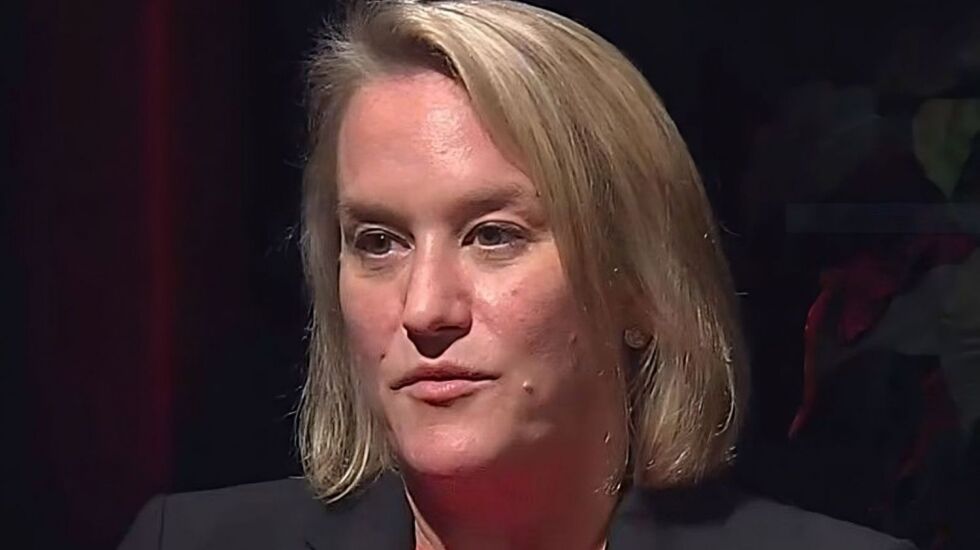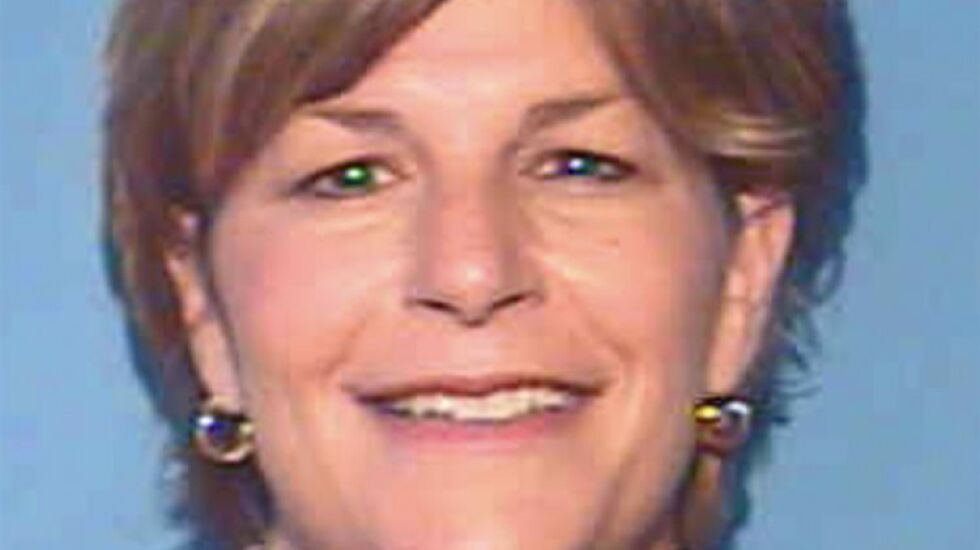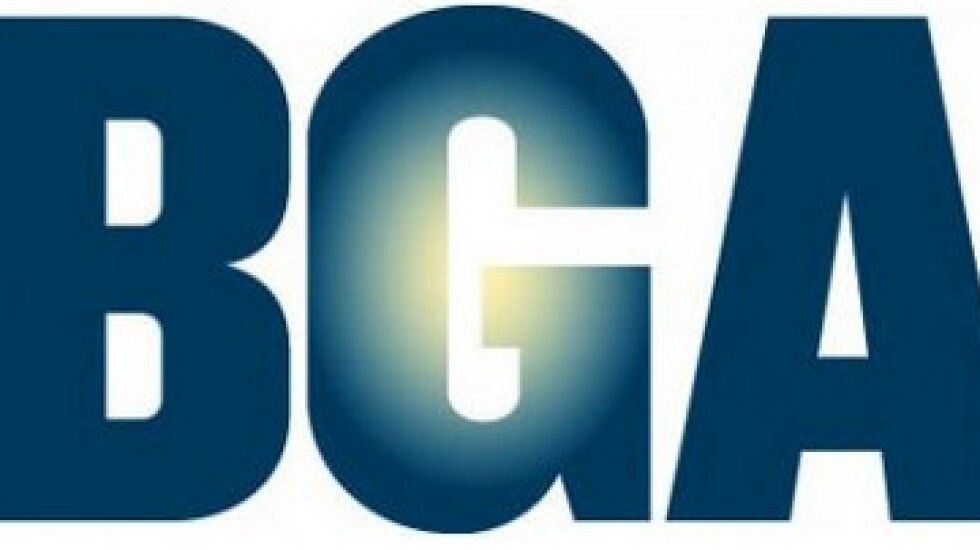
Shortly after she left her state job as a senior adviser to Gov. J.B. Pritzker, longtime political operative Nikki Budzinski collected more than $500,000 in consulting and other fees in 10 months, including more than $80,000 from a Springfield lobbyist Budzinski had helped while working for the governor, a Better Government Association investigation has found.
Based on government records, the BGA documented that $100,000 of that came from progressive organizations that don’t disclose their contributors even though Budzinski is now running as a Democrat for Congress from a downstate district on a platform that includes getting “dark money” out of politics.
The lobbyist who paid Budzinski $82,810 after Budzinski left the Pritzker administration is longtime Springfield operative Julie Curry.
State records show Curry frequently contacted Budzinski when her clients needed assistance, for instance to set up a meeting with the governor for a client or to be given access for an event at the governor’s mansion.
State workers generally are barred from accepting compensation as a lobbyist for one year after leaving government. Since Budzinski was not a registered lobbyist but instead worked as a consultant to the lobbyist paying her, Illinois’ executive order did not apply to her, records and interviews show.
“The law should also include work for a lobbying firm,” said Sheila Simon, a Southern Illinois University law professor and former lieutenant governor.
Budzinski, 45, declined an interview request and would not respond to written questions about her consulting business or work in the Pritzker administration. Neither Curry nor Budzinski would describe the work Budzinski did for Curry’s lobbying firm.
“Nikki has always taken state and federal ethics laws very seriously and will continue to do so if elected to Congress,” her campaign manager Josh Roesch said by email. “After Nikki left government, she was never a lobbyist, never registered as a state or federal lobbyist, and she complied with all ethics laws.”
A longtime political operative in Illinois and nationally, Budzinski had been labor outreach director for Hillary Clinton’s 2016 presidential campaign after holding policy positions for unions for 10 years. She was one of Pritzker’s earliest campaign aides in 2017 and later became executive director of Pritzker’s transition team before taking a state job as the governor’s senior adviser. The Pritzker campaign paid Budzinski $322,363 — making her one of its highest-paid staffers, according to a BGA analysis of state election reports. Starting in 2019 as a senior adviser to the governor, Budzinski was paid $278,000 a year and was among a handful of trusted aides who saw their state salaries doubled after Pritzker dipped into his personal wealth, tapping his company East Jackson Street LLC.
Budzinski stood by Pritzker’s side at meetings with labor leaders and downstate public figures. Behind closed doors, she took part in weekly meetings with the governor, his chief of staff, the four deputy governors and Pritzker’s general counsel, according to the governor’s calendar and state emails. She was the governor’s point person on labor issues and Internet broadband and played a key role in briefing the governor on gaming.
“Nikki is widely beloved downstate and is a close ally and friend,” Pritzker told reporters when she left state government in 2020. “She is also the first person who supported me, helped me to decide to run for governor and helped put together my campaign from our earliest days. As a senior adviser, she was a valued voice in the administration.”
This account is based on state and federal records including email exchanges between Curry and Pritzker administration officials, the governor’s calendars, IRS filings, campaign spending reports, corporate records and Budzinski’s ethics disclosure forms.
Curry connection
At times, Budzinski used her voice in the Pritzker administration on behalf of Curry, someone she called “my friend.”
Unlike Illinois lobbyists who depict the Capitol dome on their websites and tout their connections, Curry’s firm has no social media visibility and registers her as its exclusive lobbyist.
From the first days Pritzker took office in January 2019, Curry had the ear of Budzinski, government emails show.

Curry contacted Budzinski that month to set up a Pritzker meeting with top executives from Curry’s client Centene Corp., the Fortune 500 Medicaid contractor.
“Let me circle back to you,” Budzinski quickly responded.
Curry soon was in contact with Sol Flores, the deputy governor for healthcare, who helped set up an April 2019 meeting between Pritzker and Centene’s CEO.
Curry later sought Budzinski’s advice when she could not reach Flores and her deputy to iron out some last-minute logistics with Pritzker’s appearance at a Centene ribbon-cutting in May 2019 in Carbondale.
In addition to the Medicaid powerhouse Centene, Curry’s 2019 and 2020 clients included the cable industry’s trade group, a gaming company and local governments.
Budzinski helped Curry in other ways important to the lobbyist by making introductions to top Pritzker staffers and providing Curry with details of the governor’s legislative positions and schedule.
Curry had been Macon County treasurer before serving for eight years in the General Assembly representing an east central Illinois district. In 2003 and 2004, Curry was deputy chief of staff for economy and labor in the administration of then-Gov. Rod Blagojevich, responsible for the management and oversight of 16 state agencies, according to the resume Curry provided to a state commission. She opened her lobbying firm in 2008.
Budzinski introduced Curry as “my friend Julie” in an email to Deputy Governor Jesse Ruiz after Curry got a $60,000-a-year state contract to be the legislative consultant to the Illinois Student Assistance Commission from the Pritzker administration. Ruiz was deputy governor in charge of education at the time. The governor’s office and the commission said Budzinski played no role in Curry’s contract.
Curry requested Budzinski’s help in getting access to the governor’s mansion in March 2019 for an event involving the House Democratic Women’s Caucus, according to a government email. The event was attended by the governor and first lady.
Curry also asked for Budzinski’s help in getting a cable company executive, who was also an officer of the Cable Television & Communications Association of Illinois, appointed to a working group of the state’s Broadband Advisory Council, which was advising on the rollout of the state’s $420 million investment in broadband infrastructure, according to another email.
Budzinski was chairman of the council, and Curry was a lobbyist for the association.
The cable company executive was appointed to the state working group, records show, which gave her a prestigious role in shaping state policy. The Pritzker administration said state law requires the council to include industry representation.
Budzinski, who briefed the governor on gaming, also forwarded to Curry information that was shared among the governor’s top staffers on the gaming expansion bill shortly before it was voted on in 2019. Two of Curry’s clients were in the gaming industry — the sports betting company DraftKings and gaming executive Rick Heidner, who was in the midst of an ultimately unsuccessful bid to get state approvals to build a new horse-racing track and casino in Tinley Park.
DraftKings and Heidner declined to comment.
The governor’s office said by email that it “routinely shares bill analyses with stakeholders” to ensure they “understand what the governor will and won’t sign . . . Nikki did not have any role in the governor’s office in dealing with Heidner’s gaming issues.”
Budzinski complied with all required ethics reviews before leaving the administration, according to the governor’s office. In response to a public records request, the governor’s office provided 41 pages of emails showing Budzinski notified it that she would be working for Curry, Emily’s list and one other organization.
Dark money paychecks
Budzinski’s work in 2020 for “dark money” organizations contrasts with her campaign platform to “get dark money out of politics by requiring disclosure of all large dollar donations” as she runs for Congress in the 13th District. The district was redrawn by Democrats to include African American and university communities stretching from East St. Louis to Springfield, Decatur and Champaign. She is running against Republican Regan Deering, a Decatur community activist and scion of a prominent agribusiness family.
Budzinski’s federal filings contain inconsistencies including the amounts she was paid and by whom. But they show the candidate received more than $100,000 from politically prominent Washington, D.C.-based nonprofits that do not disclose their donors.
Budzinski took in $60,000 from the Sixteen Thirty Fund, which The Atlantic has called “the indisputable heavyweight of Democratic dark money.” It was co-founded by former Clinton administration appointee Eric Kessler.
In an email in response to questions, Sixteen Thirty denied having “the major purpose of influencing federal elections” and said it “empowers advocates and philanthropists to quickly and efficiently launch projects to tackle today’s toughest issues.”
In a case involving a Federal Election Commission complaint, Sixteen Thirty said in 2020 that it made $60 million in contributions to federal political committees — of $410 million in spending that year.
In one of Budzinski’s federal disclosure reports, she listed a $60,000 paycheck as coming not from Sixteen Thirty but from a related group, Demand Justice, a courts-focused progressive group founded and run by former Hillary Clinton campaign press secretary Brian Fallon.
Demand Justice was established as a project of Sixteen Thirty, according to an FEC filing.
Because Budzinski’s disclosure forms contain omissions and revisions, it is not clear whether that $60,000 is another reference to the work she did for Sixteen Thirty.
Demand Justice advocates for reshaping the U.S. Supreme Court by adding four justices. In a June 2020 tweet, Fallon said: “Defund the police.”
Budzinski did not respond to questions about whether she endorsed the positions of Demand Justice or other groups that paid her in 2020.
In 2021, Demand Justice spun off from Sixteen Thirty and became a separate dark money organization.
Budzinski also reported making $48,000 from another organization, New Venture Fund, in 2020 for “consulting services.” Using trade names including “Demand Progress,” the New Venture Fund is a tax-exempt charity that says it works on global health, international development, education and the arts. It also was co-founded by Kessler. In 2020, New Venture reported revenue of $965 million from unidentified donors and said it gave $86 million to Sixteen Thirty.
In the FEC case, New Venture said it did not have the major purpose of influencing federal elections.
The nonprofit watchdog OpenSecrets has called New Venture and Sixteen Thirty “sister” funds that have used more than 50 trade names in ways that leave almost no paper trail.
“The complexity of dark money groups makes it more difficult for average Americans to understand who is bankrolling campaigns and issue advocacy and how they stand to gain or lose,” said Sheila Krumholz, OpenSecrets’ executive director.
In January 2021, Budzinski went to work for six months in the Biden administration as chief of staff in the Office of Management and Budget. Then, she entered the race for Congress.
In early 2021, when Budzinski joined the OMB, she did not list payments from Curry or New Venture Fund on her federal disclosure forms even though that was required.
Budzinski later listed the Curry and New Venture fees on disclosure reports that congressional candidates must submit to the House clerk.
Besides the brief email from Sixteen Thirty, none of the entities for which Budzinski worked in 2020 responded to questions.
As a congressional candidate who aims to champion working families, Budzinski says her state government accomplishments included helping pass a $15-an-hour minimum wage in Illinois and helping expand high-speed Internet across the state.
Her campaign website doesn’t mention her time as a consultant, when she got fees from Curry and the Democratic groups.
Among the earliest supporters in Budzinski’s race for Congress were Pritzker and his wife, who each gave the maximum $5,800, records show.
Curry gave $2,900 a day before Budzinski formally announced she was running.








